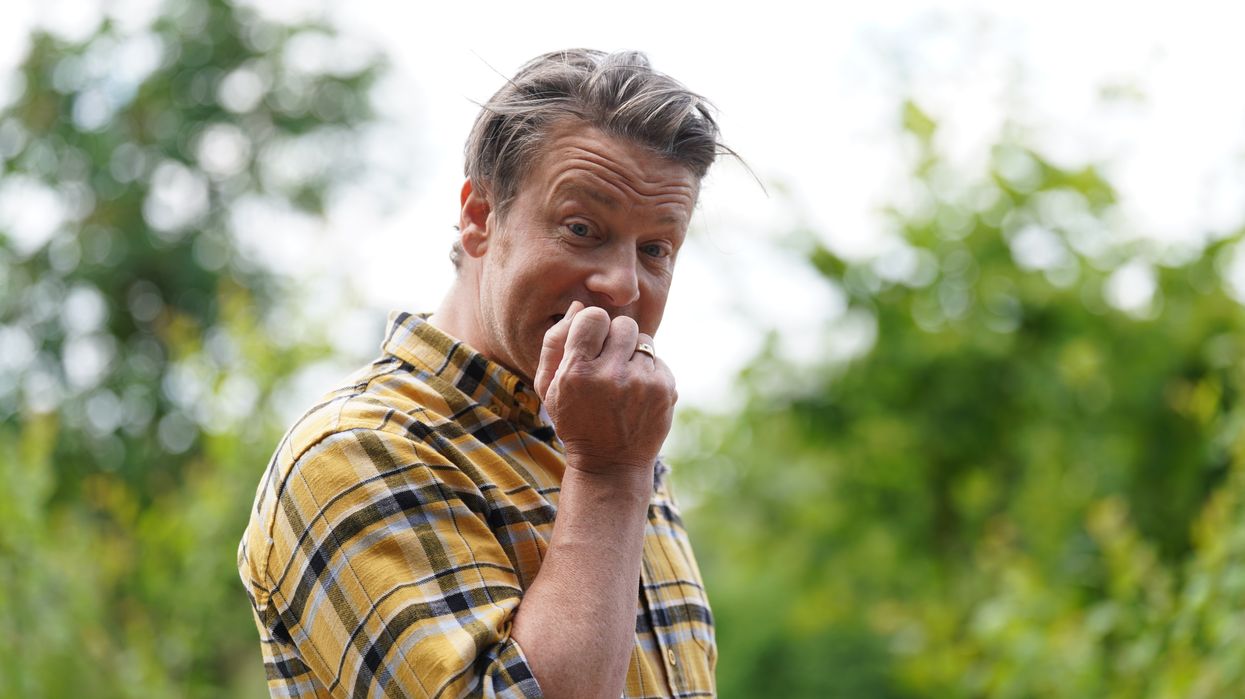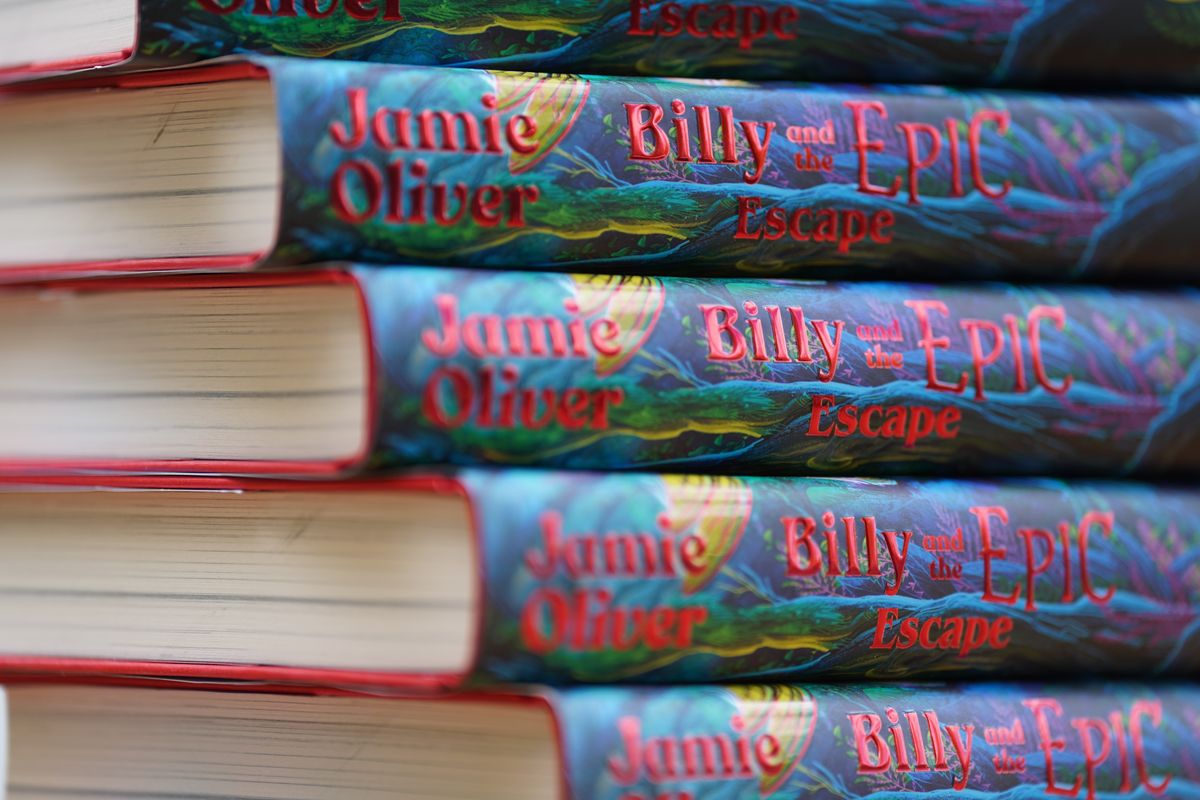Celebrity chef Jamie Oliver has issued an apology after his latest children's book was criticised for stereotyping and trivialising First Nations Australians.
The 49-year-old, currently in Australia promoting his cookbook Simply Jamie, faced backlash over his 400-page fantasy novel Billy and the Epic Escape.
The National Aboriginal and Torres Strait Islander Education Corporation (NATSIEC) has led the calls for the book to be pulled from shelves, describing it as "damaging and disrespectful".
The controversy centres on the book's portrayal of Indigenous characters and cultural practices, which critics say perpetuates harmful stereotypes.
The book features a subplot about a young First Nations girl named Ruby, who lives in foster care near Alice Springs and is kidnapped by the novel's villain.
The antagonist specifically targets Ruby because "First Nations children seem to be more connected with nature".

In the story, Ruby tells her English rescuers she can read minds and communicate with animals and plants, describing it as "the indigenous way".
Critics noted that while Ruby is supposedly from Mparntwe (Alice Springs), she uses words from the Gamilaraay people of New South Wales and Queensland, highlighting the book's cultural inaccuracies.
The story also includes a fictitious Indigenous community called Borolama, where adults are manipulated by promises of funding.
"I am devastated to hear I have caused offence and wholly apologise for doing so," Oliver said in a statement to The Guardian after learning of the calls for the book to be cancelled.
The chef added: "I am listening and reflecting and working closely with my publisher on next steps."
Penguin Random House UK admitted no consultation with Indigenous organisations or individuals took place before publication.
"It was our editorial oversight that this did not happen. It should have and the author asked for one and we apologise unreservedly," the publisher said in a statement.
Neither Oliver nor the publisher has committed to withdrawing the book from sale, though Oliver will not promote it during his Australian tour.
NATSIEC's chief executive Sharon Davis has called for immediate action to prevent further harm to First Nations readers.
"The book perpetuates harmful stereotypes, trivialises complex and painful histories and ignores the violent oppression of First Nations people," Davis said.
LATEST DEVELOPMENTS:
- Jeremy Clarkson rages countryside is being 'ethnically cleansed' for 'new towns of immigrants' in furious tax rant
- BBC blasted for 'stupid' move after casting black and minority actors in Tudor series: 'Keep history as it is!'
- Nicole Scherzinger sets record straight on Trump 'support' after sparking fury with Russell Brand interaction

She described the book's depiction as "irresponsible and damaging, reflecting a profound lack of understanding and respect".
Dr Anita Heiss, a Wiradyuri author, emphasised that "First Nations peoples need to be involved at every stage of the process".
"There is no space in Australian publishing for our stories to be told through a colonial lens," Heiss added.
from GB News https://ift.tt/3sHkDyd
Celebrity chef Jamie Oliver has issued an apology after his latest children's book was criticised for stereotyping and trivialising First Nations Australians.
The 49-year-old, currently in Australia promoting his cookbook Simply Jamie, faced backlash over his 400-page fantasy novel Billy and the Epic Escape.
The National Aboriginal and Torres Strait Islander Education Corporation (NATSIEC) has led the calls for the book to be pulled from shelves, describing it as "damaging and disrespectful".
The controversy centres on the book's portrayal of Indigenous characters and cultural practices, which critics say perpetuates harmful stereotypes.
The book features a subplot about a young First Nations girl named Ruby, who lives in foster care near Alice Springs and is kidnapped by the novel's villain.
The antagonist specifically targets Ruby because "First Nations children seem to be more connected with nature".

In the story, Ruby tells her English rescuers she can read minds and communicate with animals and plants, describing it as "the indigenous way".
Critics noted that while Ruby is supposedly from Mparntwe (Alice Springs), she uses words from the Gamilaraay people of New South Wales and Queensland, highlighting the book's cultural inaccuracies.
The story also includes a fictitious Indigenous community called Borolama, where adults are manipulated by promises of funding.
"I am devastated to hear I have caused offence and wholly apologise for doing so," Oliver said in a statement to The Guardian after learning of the calls for the book to be cancelled.
The chef added: "I am listening and reflecting and working closely with my publisher on next steps."
Penguin Random House UK admitted no consultation with Indigenous organisations or individuals took place before publication.
"It was our editorial oversight that this did not happen. It should have and the author asked for one and we apologise unreservedly," the publisher said in a statement.
Neither Oliver nor the publisher has committed to withdrawing the book from sale, though Oliver will not promote it during his Australian tour.
NATSIEC's chief executive Sharon Davis has called for immediate action to prevent further harm to First Nations readers.
"The book perpetuates harmful stereotypes, trivialises complex and painful histories and ignores the violent oppression of First Nations people," Davis said.
LATEST DEVELOPMENTS:
- Jeremy Clarkson rages countryside is being 'ethnically cleansed' for 'new towns of immigrants' in furious tax rant
- BBC blasted for 'stupid' move after casting black and minority actors in Tudor series: 'Keep history as it is!'
- Nicole Scherzinger sets record straight on Trump 'support' after sparking fury with Russell Brand interaction

She described the book's depiction as "irresponsible and damaging, reflecting a profound lack of understanding and respect".
Dr Anita Heiss, a Wiradyuri author, emphasised that "First Nations peoples need to be involved at every stage of the process".
"There is no space in Australian publishing for our stories to be told through a colonial lens," Heiss added.



0 Comments
Don't share any link